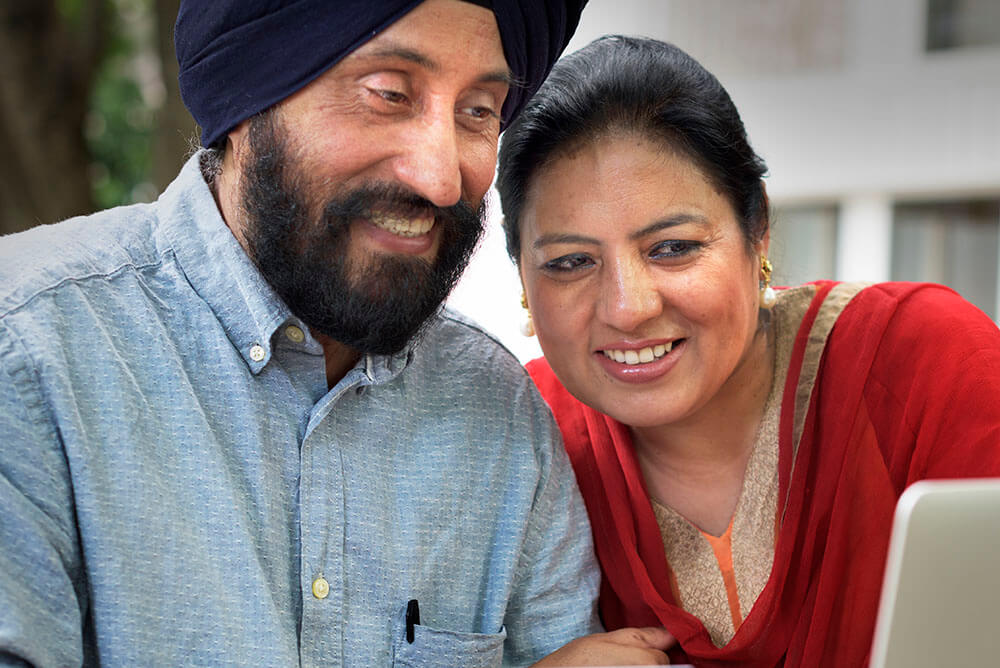
Sex has always been a hot topic.
Fortunately, with each passing generation we have become more knowledgeable and forthright in our on-going discussions regarding the subject. Unfortunately, in our society, sex is often portrayed through a singularly youthful lens. When we think about sexual health in a medical sense, we often focus our attention on safe-sex practices for teenagers and young adults or on women’s fertility matters, which often revolve around the ovulation cycle. However, an important age group that largely gets overlooked in this topic are older adults including pre- or post-menopausal women.

One of the more disconcerting aspects of aging is the loss of libido and, regardless of one’s proclivity, our sexual health and activity is a very important part of our physical and emotional lives. Libido has been described as the life force, but is most often regarded as our sex drive. One of the main things we learn to recognize as we grow and age is our sexual feelings and needs. As we mature these feelings and needs change, but regardless of our age sexual activity is understood to be a health benefit in quite few ways.
Not only does sex burn calories and count as exercise It has been found that sexually active people have improved immune systems, lower blood pressure, lower risk of heart attack, better-quality sleep, relief of stress and yes, improved libido or one’s desire for more sex. Other benefits include a smoothing of the skin due to the estrogen released during sex and for women sexual activity lowers the risk of incontinence by strengthening the pelvic floor. Sex has been shown to ease menstrual cramps and boost self-esteem and, due to the physical work out one gets from sexual activity, it causes the brain to release chemicals that boost one’s serotonin levels which elevates mood.

Sex also strengthens the emotional and physical bond between one’s partner and themselves and therefore the loss of libido not only affects us, but also impacts our partner as well. Age is not the only factor in the loss of libido and throughout the years our libido may fluctuate due to external changes as well as the internal changes that affect us. From observation and experience we all know that hormones are raging in our teenage years and while this may be true there are some studies that have shown that a woman’s libido actually peaks between age of 27-45. Unfortunately, there is no way to put libido into a neat little group package since everyone’s health, emotional life and external surroundings are not all the same.
It’s not uncommon for an eighteen-year-old woman who has just delivered a baby to share the same lack of enthusiasm for sex as the thirty-year-old woman in the same situation. Stress, depression and lack of sleep can be some of the culprits interfering with one’s libido while medications and lack of exercise can also adversely affect one’s sex life. A woman who is breast feeding may suffer a loss of libido due to the combination of the increase of prolactin and oxytocin hormones which can bring a woman great pleasure from nursing her child. Since her emotional and physical intimacy needs may be met by the activity there may be a decrease in libido as she may not feel the need or desire to seek physical attention from her partner.
Hormonal imbalance or change affects a woman’s libido and quite often is the cause of decreased sexual desire. A postpartum woman may lose her desire due to a sharp drop in estrogen, the hormone that makes a woman feel sexually motivated. Other reasons for loss of sex drive could also be due to a medical condition such as hyperthyroidism. Hyperthyroidism is when the thyroid produces too much of the hormone thyroxine with some of the symptoms being irritability, fatigue, irregular heartbeat and loss of libido.

While there are various drugs such as sildenafil (Viagra), tadalafil (Cialis) and vardenafil (Levitra) successfully offered to men regarding erectile dysfunction, there are relatively few comparable drugs for woman when it comes to a lack of sexual desire or arousal. Since Viagra improves blood flow to the male genitals, allowing for sustained erections, it had been thought that the drug would have a similar effect for woman. Unfortunately, this theory didn’t hold up in the few studies that were done, but recently the FDA did approve two drugs for treating low libido in premenopausal women. Flibanserin (Addyis) and bremelanotide (Vyleesi) are the two FDA approved drugs for premenopausal woman who are experiencing low libido. Unfortunately, they both come with warnings about adverse side effects such as dizziness and nausea and, just to set the mood, Vyleesi needs to be injected into the abdomen about forty-five minutes prior to sexual activity. Both drugs have only about a 10% effectiveness and come with a list a of possible side effects ranging from nausea to vertigo, none of which does anything to enhance a woman’s sexual desire.

As we age our bodies change and we become more vigilant about taking care of our health. Women take prophylactic measures for early warning signs of cancer by getting yearly mammograms. Diets are observed to keep weight in check and to avoid unhealthy eating habits that can lead to various health concerns. In many cases medications are required to lower cholesterol and blood pressure and vitamin intake is boosted to ward off osteoporosis. After the age of fifty regularly scheduled colonoscopies are performed to detect abnormalities in the large intestine. Dermatologists require a visit to ensure the health of our skin, as well as providing a way to cosmetically enhance one’s natural beauty. A visit to the cardiologist helps to guarantee that the heart will stay healthy and an appointment with a gynecologist is important in safeguarding a woman’s sexual health.
Any gynecologist is perfectly capable of testing for and treating a disease, but when it comes to receiving information regarding a woman’s sexuality it is often difficult to get clear answers. This is especially true regarding women who have gone through menopause and, while sexual problems are common in about half the women between the age of 45 and up, only about 10%-15% actually discuss these issues with their doctor. Often shame and embarrassment hinders a forthright conversation regarding sexuality and a reported common complaint has been that the doctor does not take the complaints seriously; explaining them as “that time of life.” It’s frustrating and disheartening to be disregarded and it’s understandable that a woman would get depressed upon hearing that nothing can be done to mitigate the lack of desire, arousal and orgasm.


Recent Comments